Staphylea trifolia, bladdernut, is a native woodland shrub or small tree.
Flowers
Inflorescence/Flower cluster:
The Staphylea trifolia inflorescence is clusters of 5 to 12 flowers with stalks. The inflorescence emerges at or about the same time as the leaves emerge in spring. The clusters develop from the axils of the leaves.
At the top of the photos, emerging leaves can be seen.
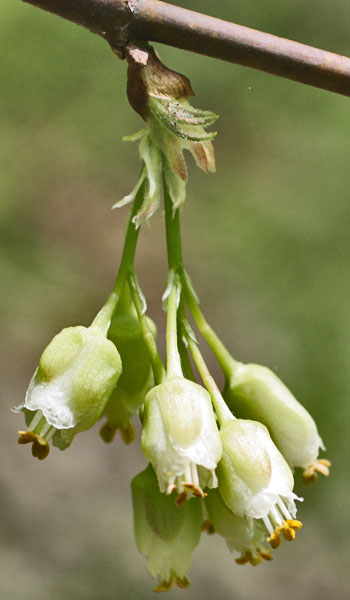
Here, the leaves have emerged. The leaf stems can be seen.
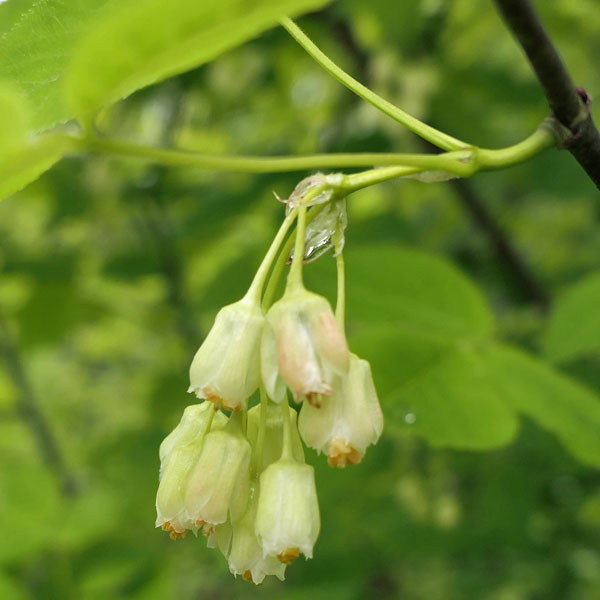
Individual Flower:
For shrub identification, the bladdednut flowers are quite distinctive. The bell-shaped flowers are about 3/4" long. The flower has 5 outer oblong sepals that are greenish white to reddish. They hug the petals. There are 5 inner white petals which flare slightly at the end. The sepals and petals are almost the same length.
The flower has 5 stamens with yellow to orange anthers. The pistil has a greenish white style and stigma. The stigma divides into 3 lobes. The stamens and pistil are about the same length and protrude slightly beyond the sepals and petals.
Flower buds and leaf buds breaking out.
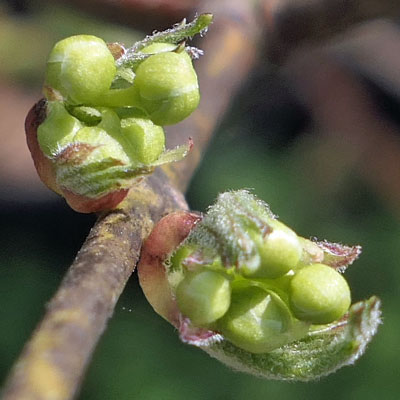
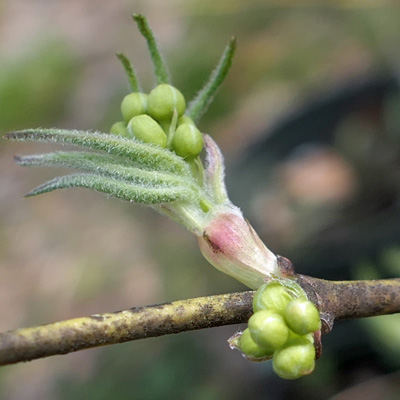
The photo below shows the sepals white while young then turning reddish later in the right photo. The anthers appear to be more immature in the left photo. Also seen are the petals inside of the sepals. The stigmas are not easily visible in these photos.
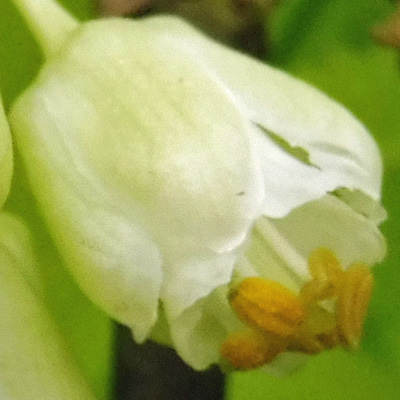
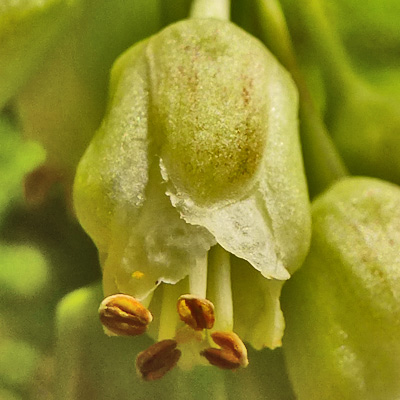
The photos below clearly show the stigmas. They are 3 lobed and adjacent to the anthers that appear to be dehiscing. The flowers cannot self-fertilize because they are self-incompatible (genetic/biochemical).
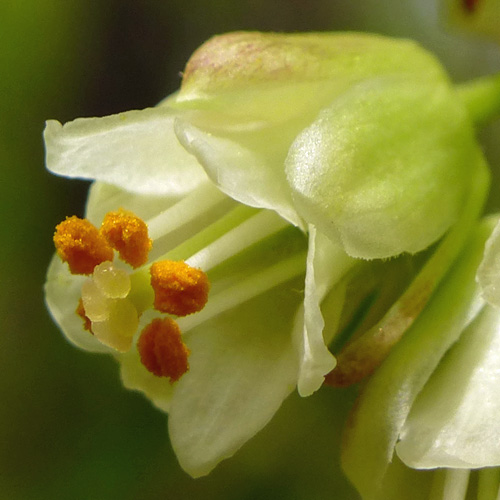
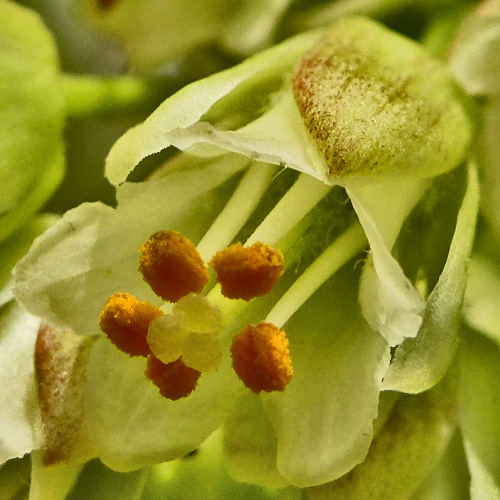
In photo below, flower on the upper right has 2 anthers (yellow) that are not mature yet. The stigmas can be seen in side view.
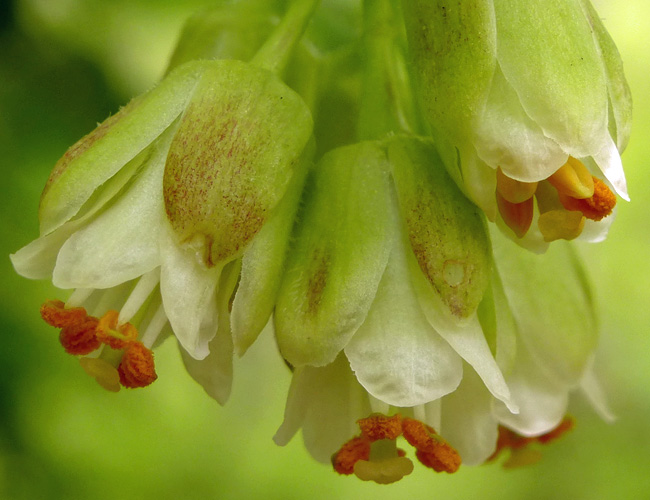
Fruit
Fruit:
For shrub identification, the bladdednut fruits are quite unique. After a flower is fertilized, it develops an air-filled papery seed capsule that is about 2 inches long. The capsule has 3 pointed lobes/chambers. The immature capsules are green and then mature to white to tan and finally brown. The mature seeds rattle inside the capsule when shaken. There are several small brown hard seeds in the capsule.
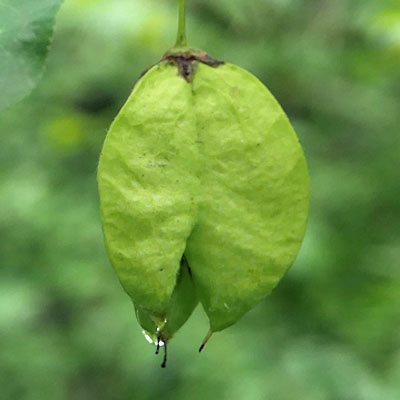
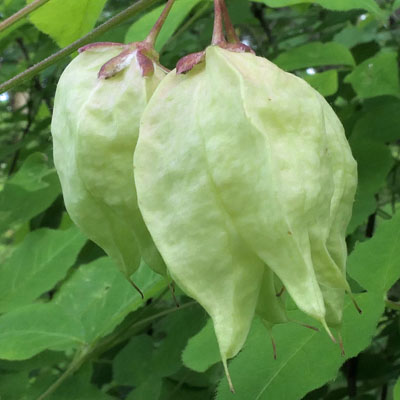
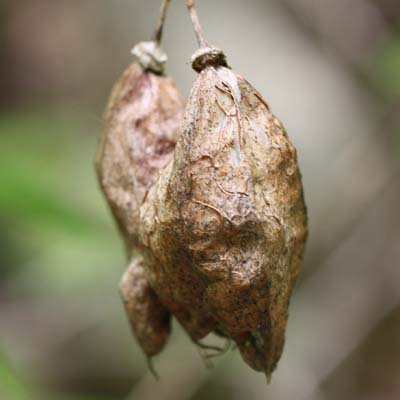
Leaves
Leaves:
Bladdernut leaves are opposite and pinnate compound.
The compound leaf has 3 leaflets on a long leaf stalk (petiole- from the stem to the first leaflet attachment). The extension of the leaf stalk where the leaflets are attached is called a rachis. The two lateral leaflets are sessile or almost sessile on to the rachis. The terminal leaflet is long stalked. Sometimes the compound leaf has 5 leaflets. For shrub identification, not many shrubs have opposite compound leaves with 3 leaflets. These leaves look very much like poison ivy leaves.
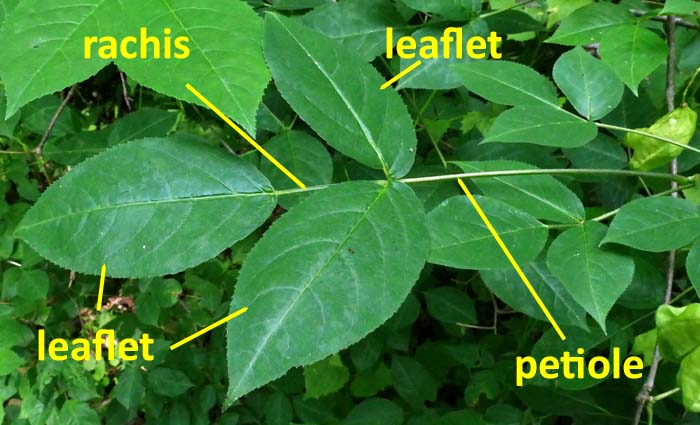
The entire compound leaf including the stalk are about 7 inches long. The leaflets are ovate (broadest at the base) to elliptic (broadest at the middle) in shape that tapers to a short narrow tip. The leaflets are about 2.5 inches long.
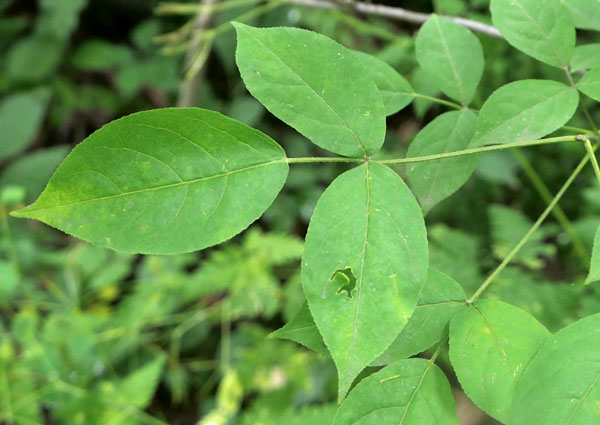
The margins are finely serrated. The underside of the leaf is hairy.
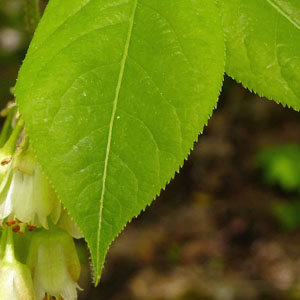
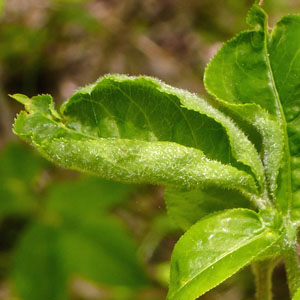
Plant
Bladdernut is a large shrub or small tree. It is multi-stemmed and heavily branched and suckers easily. In the fall it can have colorful foliage.
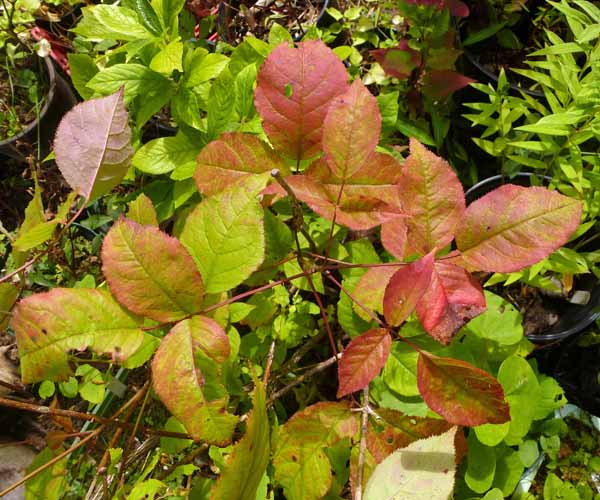
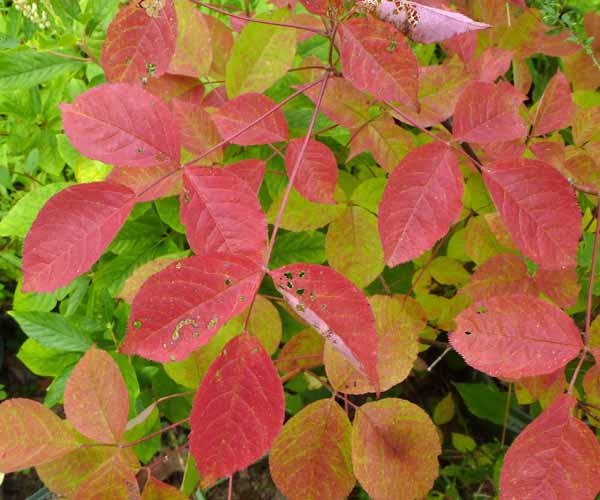
Habitat
Habitat: moist woodlands in partial shade.
Text by Millie Ling and all photos by Hubert & Millie Ling. Photos: flowers - May 4-19, cultivation & various parks/preserves in NJ.
Cultivation
The cultivation material below is courtesy of
Jersey Friendly Yards searchable plant database: Staphylea trifolia
Bloom Times: Spring, Late Spring to Early Summer
Hardiness Zone: 6a, 6b, 7a, 7b
Soil Type: Loam, Organic, Clay
Soil Moisture: Medium to Dry
Drought Tolerance: Medium
Soil pH: Slightly Acidic, Neutral, Slightly Alkaline
Salt Tolerance: Low to None
Optimal Light: Partial Shade
Light Range: Partial Shade, Shade
Growth Rate: Medium-fast
Height: 10 - 15 ft
Spread: 10 - 15 ft
Deer Resistance: None
Additional information
Additional information / references:
- The USDA website shows Staphylea trifolia distribution in the US and other information: https://plants.usda.gov/home/plantProfile?symbol=STTR
- Illinois Wildflowers: descriptions https://www.illinoiswildflowers.info/trees/plants/bladdernut.htm
- Minnesota Wildflowers - good information and photos: https://www.minnesotawildflowers.info/shrub/bladdernut
- Missouriplants- good information and photos: https://www.missouriplants.com/Staphylea_trifolia_page.html
- Jersey-Friendly Yards - great gardening information: https://www.jerseyyards.org/plant/staphylea-trifolia/